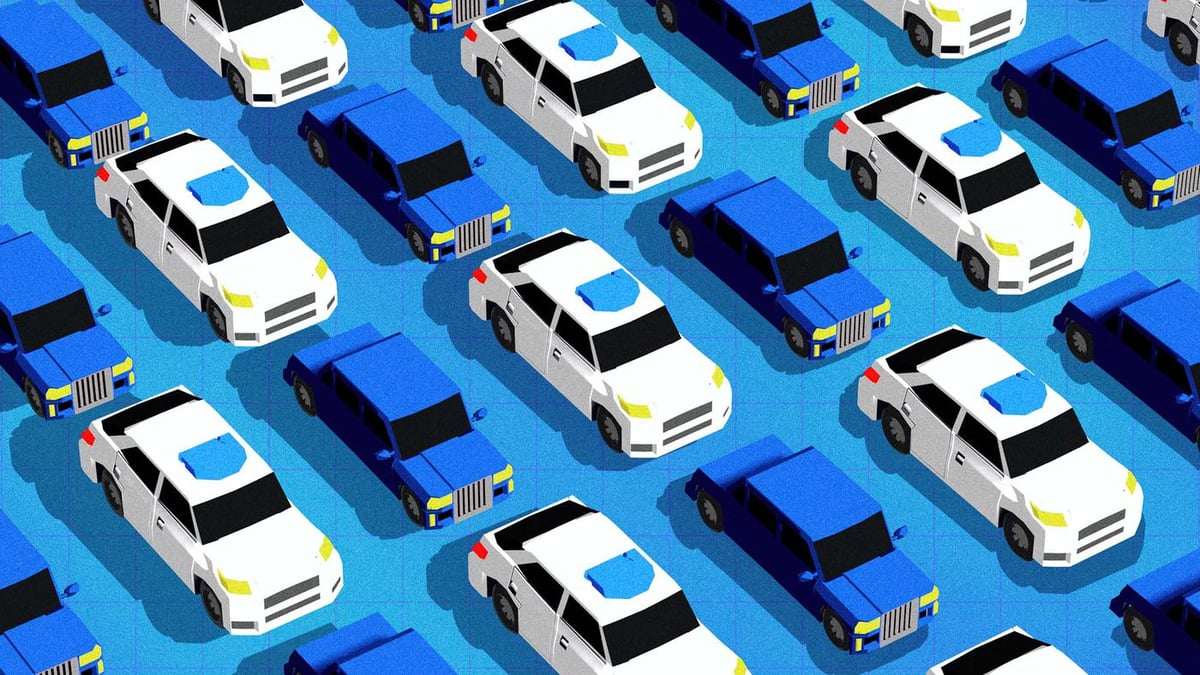Even if autonomous vehicles work perfectly, they will likely not decrease emissions or crash deaths because so many more people will use them. “How do people respond when an activity becomes less onerous and more fun? They do more of it.”



Advertise here with Carbon Ads
This site is made possible by member support. 💞
Big thanks to Arcustech for hosting the site and offering amazing tech support.
When you buy through links on kottke.org, I may earn an affiliate commission. Thanks for supporting the site!
kottke.org. home of fine hypertext products since 1998.





Comments 4
As a cyclist/pedestrian who has high hate for cars, this sounds overly defeatist to me. All of the autonomous cars thus far are electric which while not carbon zero much more carbon and emission friendly than gas cars, tire wear now withstanding.
The autonomous cars in SF (waymo) are much much much more polite and safer than the human drivers, it's hard to state how much more but you can see it in the data. Even if you scale it up, I imagine it still stays fundamentally much safer.
I'm all for building up mass transit and getting more people out on bikes/walking, but there are going to be a number of people for then next few decades that aren't gonna switch and the best thing we can do to increase (electric) cycling is to increase safety on the road and the best way to increase safety is to reduce the number of human operated automobiles.
I feel like the anti-tech, anti-car bias of my fellow liberals is clouding their judgement on how much of a step function improvement this is going to be, even if it doesn't fix all problems.
Huge agree on this. I take waymo's in SF regularly, and I feel both safer as a passenger in them and as a pedestrian. Waymo's are just so much more predictable in how they will behave, as compared to us sloppy humans. I also have many female friends who feel much more safe using Waymo, especially at night.
The Jevon's paradox angle is interesting, but I think it's super difficult to try to predict that. There many cases where the paradox doesn't kick in, but we don't hear about them.
What we do know is that both the anecdotal and real data is showing AVs as much safer... right NOW. We'll look back at the days where we expected human beings to carefully drive 2-ton machines near pedestrians as a savage time.
I've enjoyed my Waymo rides, but I still haven't found an answer to this question: when Waymo kills a pedestrian, or prevents firemen from accessing fireplugs, who is legally liable?
In a world where more goods are shipping from the Internet vs physical stores, what errands will these Jevons paradox drivers be attending to that they weren't previously? Plus, it's not a change in road capacity, just vehicle availability. More people won't be driving cars more often; they'll just be riding instead. The net number of cars likely would not change.
Hello! In order to comment or fave, you need to be a current kottke.org member. If you'd like to sign up for a membership to support the site and join the conversation, you can explore your options here.
Existing members can sign in here. If you're a former member, you can renew your membership.
Note: If you are a member and tried to log in, it didn't work, and now you're stuck in a neverending login loop of death, try disabling any ad blockers or extensions that you have installed on your browser...sometimes they can interfere with the Memberful links. Still having trouble? Email me!
In order to comment or fave, you need to be a current kottke.org member. Check out your options for renewal.
This is the name that'll be displayed next to comments you make on kottke.org; your email will not be displayed publicly. I'd encourage you to use your real name (or at least your first name and last initial) but you can also pick something that you go by when you participate in communities online. Choose something durable and reasonably unique (not "Me" or "anon"). Please don't change this often. No impersonation.
Note: I'm letting folks change their display names because the membership service that kottke.org uses collects full names and I thought some people might not want their names displayed publicly here. If it gets abused, I might disable this feature.
If you feel like this comment goes against the grain of the community guidelines or is otherwise inappropriate, please let me know and I will take a look at it.
Hello! In order to leave a comment, you need to be a current kottke.org member. If you'd like to sign up for a membership to support the site and join the conversation, you can explore your options here.
Existing members can sign in here. If you're a former member, you can renew your membership.
Note: If you are a member and tried to log in, it didn't work, and now you're stuck in a neverending login loop of death, try disabling any ad blockers or extensions that you have installed on your browser...sometimes they can interfere with the Memberful links. Still having trouble? Email me!